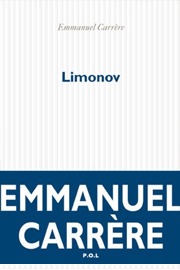The Pen and the Sword: On Carrère’s «Limonov» and the Militant Writer
Intellectual history, «nonfiction novel», and a nuanced study of a fascinating and infuriating public figure: all of these are apt descriptions of Emmanuel Carrère’s 2011 book on the Russian writer and political leader Eduard Limonov. Author and subject had first met in the early 1980s, Carrère writes in the book’s prologue, at a time when Limonov’s autobiographical novel It’s Me, Eddie had begun to attract attention in international literary circles. In the pages that immediately follow, Carrère sketches Limonov’s life since then, both as a writer and, increasingly, as someone who made political decisions that appalled many on the left and center. In the 1990s, he traveled to fight in the Balkans on behalf of Serbia; he made ominous comments about Gorbachev; and he founded a Russian political party whose name echoed a century’s totalitarian nightmares: the National Bolshevik Party.
Because he is a humanist, Carrère is appalled by this behavior, and because he is a humanist, Carrère seeks to understand it. Running in the background for much of Limonov is Carrère’s own intellectual history: the son of a mother whose field of study was the Soviet Union, and the cousin of a journalist who was murdered after investigating corruption in post-Soviet society. In other words, he is far from a disinterested party, and his familiarity with this milieu is greater than one might assume. And the end result is a portrait of ugliness: Limonov’s early association with thugs and rapists as he came of age; his growing interest in the literary scene, even as a certain type of violence remained appealing; his move to New York, then to Paris; and, eventually, his return to Russia.
In the midst of this, the existence of this book raises a question of sympathy: while there may have once been an element of the underdog to Limonov’s public persona, any vestiges of that were likely drained away by the time he was shown on a BBC documentary firing a machine gun from a Serbian position at Sarajevo. Carrère notes that this was more posturing than anything — «the little boy playing the tough guy at the amusement park» — but, earlier, leaves in a significant disclaimer: «Whether Limonov would have been troubled by really shooting at people, and whether he’s actually done it in other circumstances, remain open questions».
Questions like that are a hallmark of Limonov. Carrère sometimes weaves his reaction to information he learns into the narrative — the footage of Limonov shooting, for instance, caused him to stop working on the book for «over a year». Throughout, he sometimes pauses to ruminate over information he’s just learned, and occasionally attempts to piece together whether a certain action was as bad as it may first appear. The nature of conflicts in the former Yugoslavia are one area where this approach is taken, as is the appeal of nostalgia for the Soviet era in Russia. Carrère’s thoughts on the latter are clarifying, even if they are far from reassuring.
Throughout the book, he follows his subject closely. The approach is very novelistic, and Carrère has worked in both forms. In a 2013 interview in The Paris Review, Carrère described his methods:
...a novel is fictional, with imaginary characters and events. If you ignore that criterion, then obviously, my books are novels. They are novelistic constructions in which I make use of all kinds of novelistic devices, in which I strive to constantly sustain the reader’s interest, to create fear, pity, identification, suspense, and the yearning to keep turning the pages.
Carrère’s focus here is on the dual evolution of Limonov’s inner life and public face, and his methods are largely based around recounting events and letting the reader draw their own conclusions than aiming for analysis. Those looking for a more specifically literary take on Limonov would do well to read an excellent Keith Gessen piece on Limonov from 2003, which also examines Limonov’s shift towards fascism in the light of his writings, and concisely makes the argument that his fondness for political agitation has come at the detriment of his considerable skills as a writer. Gessen also identifies an antisocial aspect of Limonov’s writing that seems to prefigure Limonov’s political maneuvers. Those seeking a more ground-level view of the National Bolshevik Party may want to read Valery Panyushkin’s Twelve Who Don’t Agree, a book about contemporary Russian protest movements from all over the political spectrum, where Limonov’s organization makes a disquieting appearance.
It isn’t until almost three-quarters of the way through the book that Carrère makes a reference to Yukio Mishima. Mishima, the post-war Japanese novelist, embraced a nationalistic philosophy, started a paramilitary group, and ended up committing suicide after a failed attempt to take over a military base in 1970. There’s something deeply compelling about the blend of radical politics and raw literary skills; at the same time, the inherent volatility of that combination can leave narratives like this one reading as cautionary tales. Carrère's book is a compelling character study and a portrait of a nation in flux. Whether it will inspire empathy or contempt for its subject — or both — will depend on the reader, an outcome this work seems designed to anticipate.
«Biographile», 21 october 2014
 copyleft 2012–2020
copyleft 2012–2020